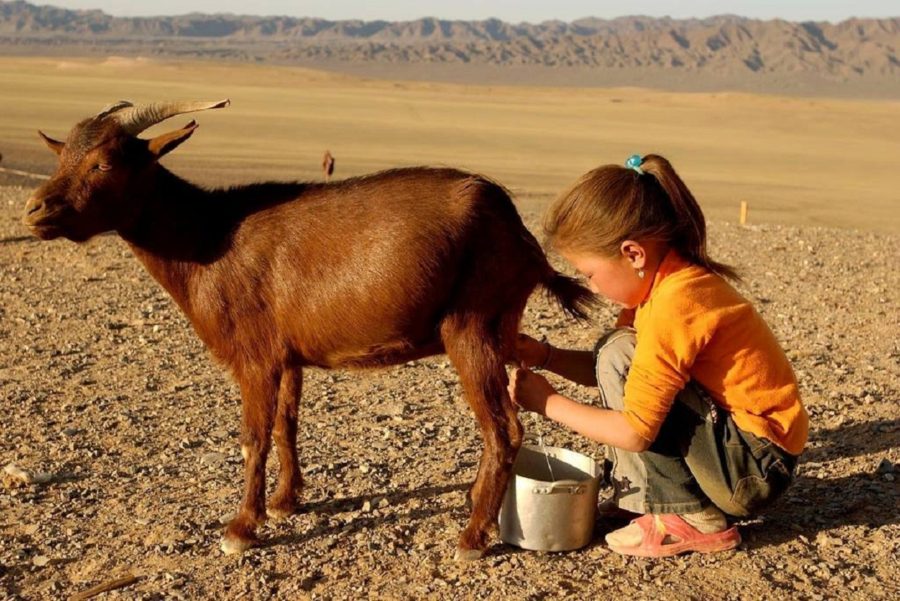Must Read: Goat Milk Far Better Than Cow Milk: See Why

The
Nigerian Forum for Agricultural Advisory Services (NIFAAS), has
recommended the consumption of goat milk, saying it is more beneficial
to healthy growth than cow milk.
This is because goat milk
contained more protein, higher level of essential amino acids and could
supply the body with more vitamin A than cow milk.
The
milk from goat is also higher in calcium phosphorous and potassium.
Goat milk is also rich in iron, copper, magnesium, manganese and has a
lot of antioxidant activity.
In addition to all the nutritional
values mentioned above, the protein in goat milk is said to digest
faster and easier than that of cow milk.

NIFAAS, however, noted that most Nigerians do not consume goat milk due to its `nauseating’ flavour
and bitter taste, and advised that the udder must be cleaned thoroughly
with warm water and the coat brushed well before milking to avoid the
bitter taste.
“This is to avoid foreign matter
from the skin getting into milk, the milk also needs to be filtered and
the buckets, jars being used sterilised.
“Also, once milking is done, the milk should be promptly cooled
to about 17c, this will stop enzyme action, prevent breakdown of fats,
other lipids to release fatty acids which contributes to the goaty
flavour of milk.
“The female goats produce a lot of pheromones and when kept close
to the male goats, they get affected by the latter’s odour, which is
passed into milk.
“It’s safer to keep the doe and buck yards apart, especially when milking.
“The farmer should only allow the does and bucks to meet during
the breeding season, this helps in eliminating the goaty flavour in
milk.”
Just check out all that one glass of goat milk has to offer.
- Calories: 168
- Saturated Fat: 6.5 grams / 33 percent DV*
- Carbohydrates: 11 grams / 4 percent DV
- Protein: 10.9 grams / 4 percent DV
- Cholesterol: 27 milligrams / 9 percent DV
- Sugars: 11 grams
- Sodium: 12 milligrams / 5 percent DV
Minerals
- Calcium: 327 milligrams / 33 percent DV
- Phosphorous: 271 milligrams / 27 percent DV
- Magnesium: 34.2 milligrams / 9 percent DV
- Potassium: 498 milligrams / 14 percent DV
- Copper: 0.1 milligrams / 6 percent DV
- Zinc: 0.7 milligrams / 5 percent DV
Vitamins
- Vitamin A: 483 IU / 10 percent DV
- Vitamin B2 (Riboflavin): 0.3 milligrams / 20 percent DV
- Vitamin C: 3.2 milligrams / 5 percent DV
- Vitamin D: 29.3 IU / 7 percent DV

